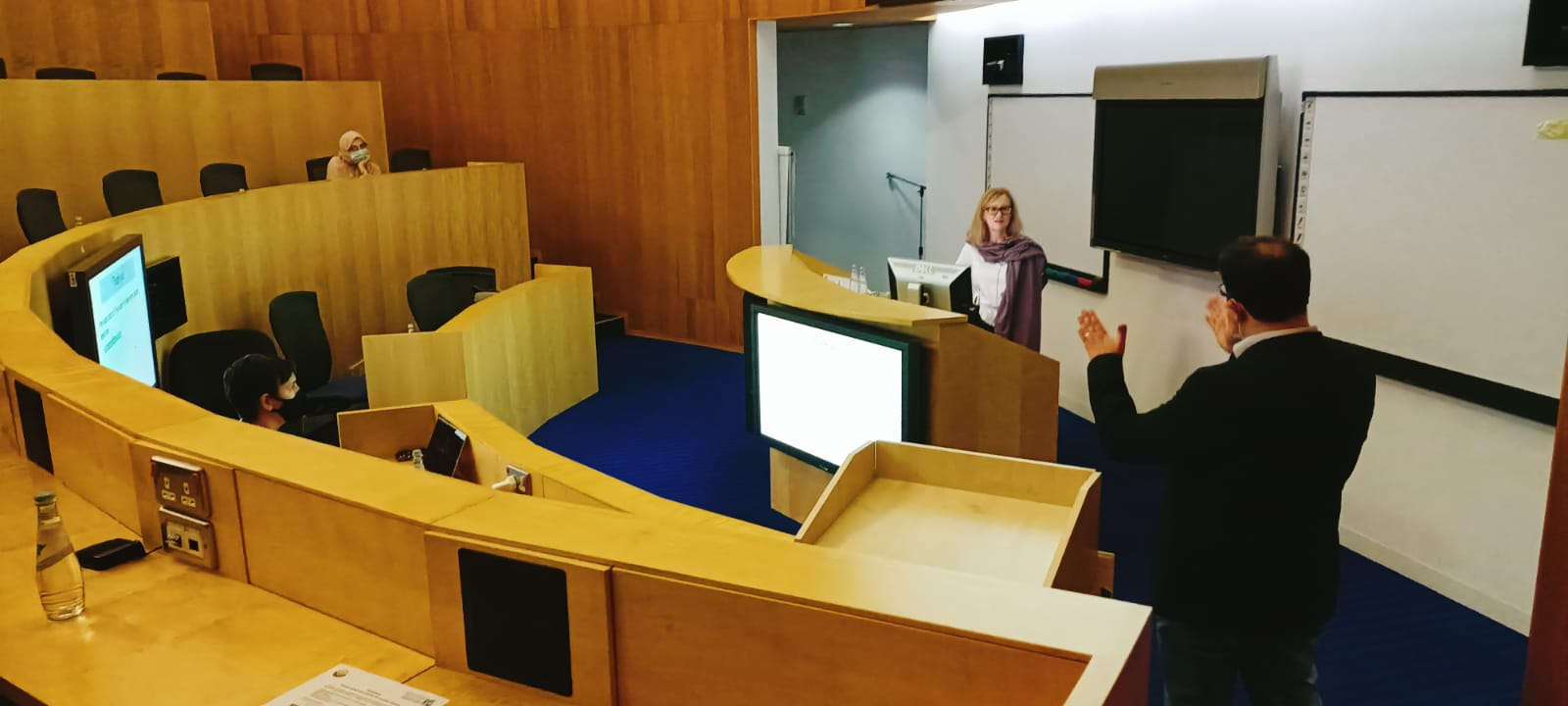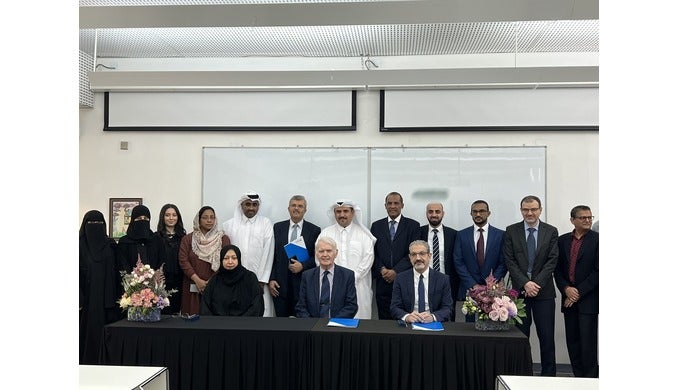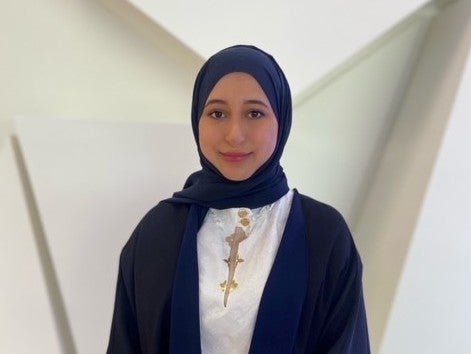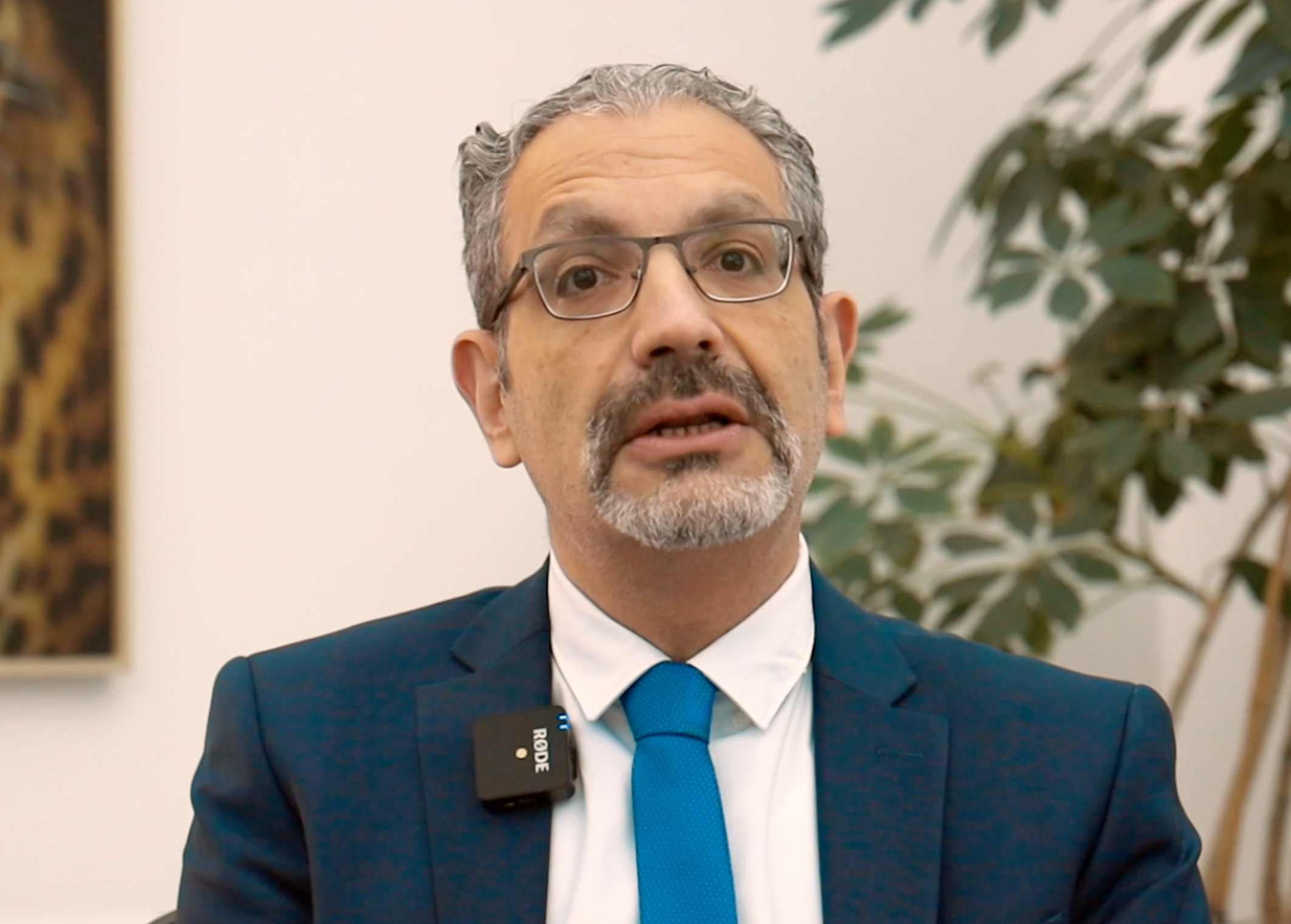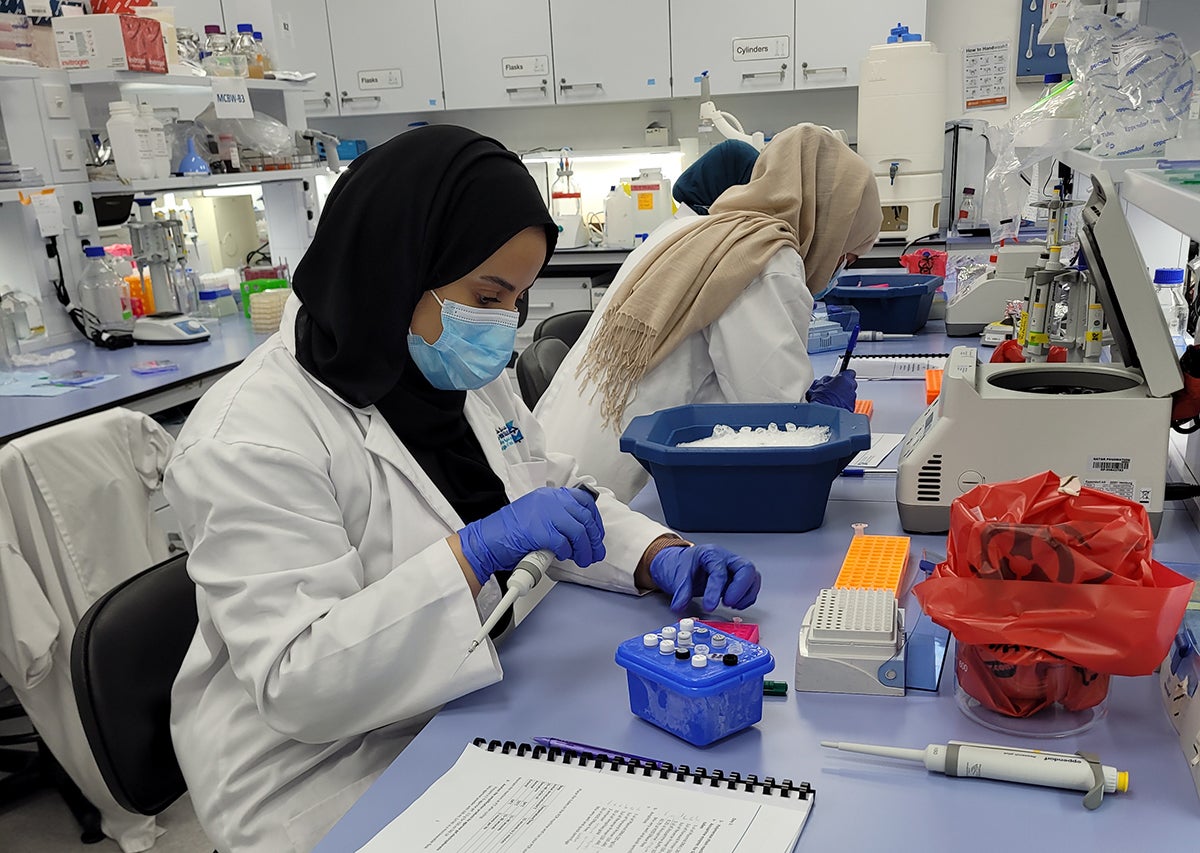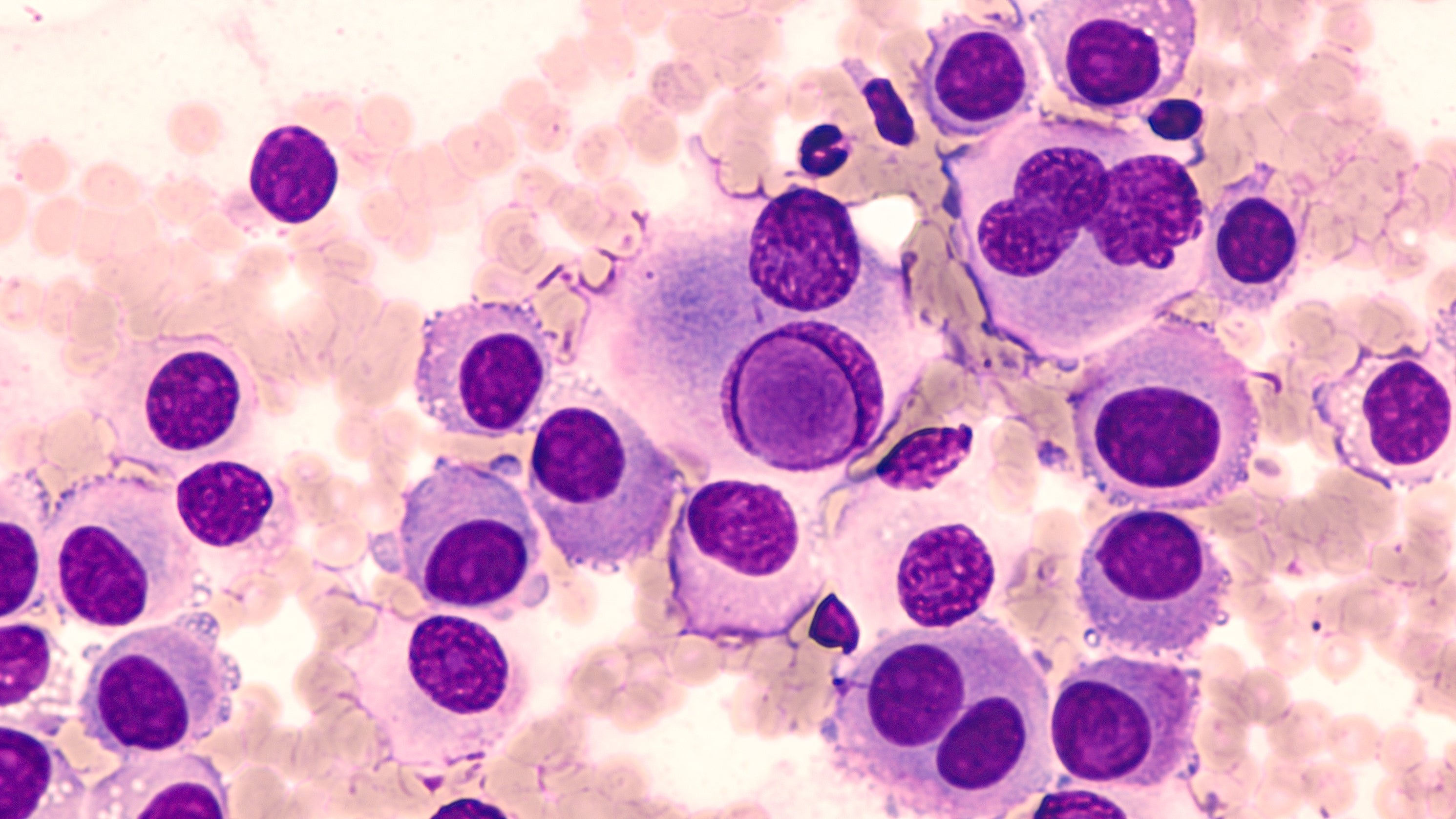Use of bioinformatic tools can facilitate implementation of precision medicine in Qatar
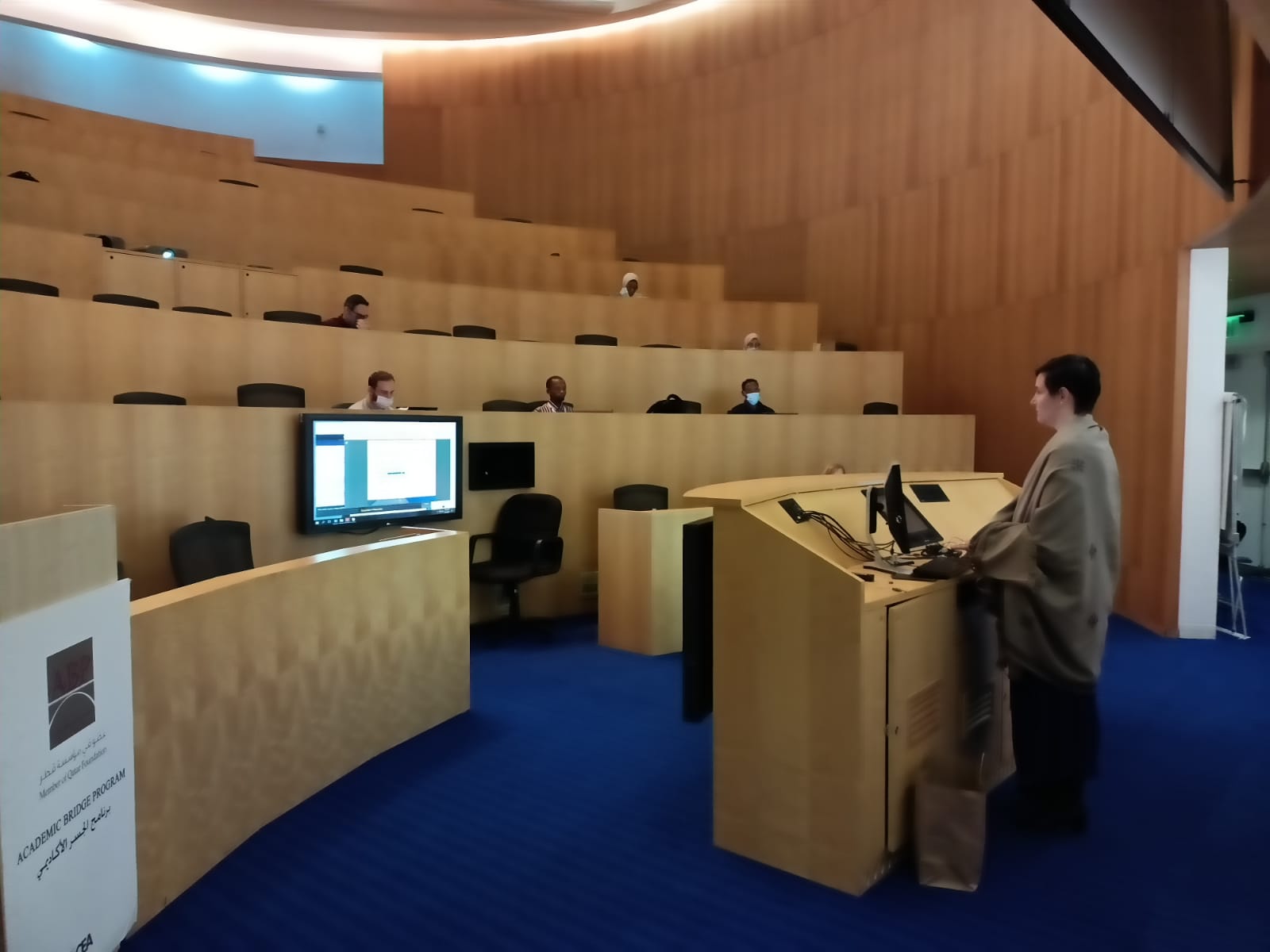
The College of Health and Life Sciences (CHLS) at Hamad Bin Khalifa University (HBKU) delivered a CPD-accredited workshop to train physicians on essential bioinformatic tools to analyze and interpret genetic variation in clinical practice.
The workshop, which took place on October 9, aimed to equip participants to recognize basic bioinformatics tools and their exploitation to analyze genetic variation. Additionally, participants were able to interpret these variations in a clinical context using available databases, resources, and software.
The workshop was presented by two eminent experts in genetics and clinical bioinformatics: Dr. Borbala Mifsud, assistant professor, Genomics and Precision Medicine, CHLS, HBKU; and Dr. Patricia Munroe, professor of Molecular Medicine at William Harvey Research Institute, Queen Mary University of London.
Presentations by Dr. Mifsud and Dr. Munroe introduced how genetic variations are linked to diseases and how they can be used in clinical practice. They provided examples for the use of essential bioinformatics tools available for the physician audience to search and analyze genomics data, which could ultimately facilitate the implementation of precision medicine.
Qatar's increasing accessibility to technologies that interrogate genomes, including whole genome sequencing of patients through the Qatar Genome Programme, provides a wealth of data that can guide practicing physicians to diagnose specific diseases and potentially to assess future health risks in Qatar. Bioinformatics, an interdisciplinary field that combines biology, computer science, and statistics that analyzes and interprets extensive genomic data, is required to translate such data into advice for patients and clinicians.
The workshop was developed under the guidance of the Scientific Planning Committee, chaired by Dr. Ayman Al Haj Zen, assistant professor, CHLS; Dr. Nady El Hajj, assistant professor, CHLS; Dr. Borbala Mifsud; assistant professor, CHLS; Dr. Omar Albagha, professor, CHLS; and Dr. Sharon Maria Bout-Tabaku, attending physician, Pediatric Rheumatology, Sidra Medicine.
Upon the conclusion of the workshop, Dr. Edward Stuenkel, CHLS founding dean, said: “Our training initiatives at CHLS serve to bridge the gap between academia and clinical practice by furthering specialized knowledge and the understanding of newer specialized tools. These opportunities for practicing physicians in Qatar help improve patient outcomes and advance efforts to implement personalized medicine.”
For more information on the work of the College of Health and Life Sciences, please visit chls.hbku.edu.qa
